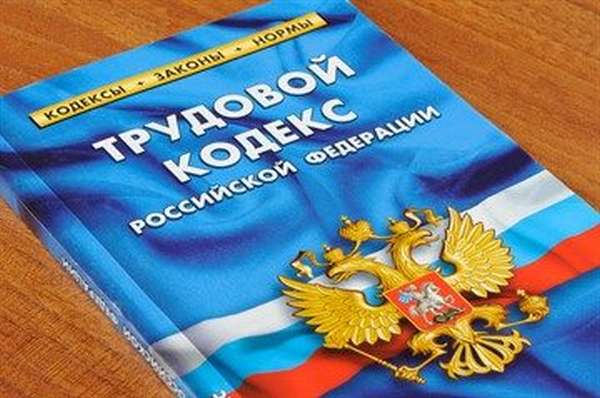When preparing any documents, concluding contracts, transferring property under a deed of gift, etc. Often the conditions imposed and the rules in force are influenced by the degree of kinship of citizens representing both parties to the transaction.
From a legislative point of view, the list of persons who are closely related to each other is regulated by the provisions of the Family Code of the Russian Federation. But this document is not the only one that contains the meaning of the concept of “close relatives”. Moreover, in other legal aspects its definition may differ from that used in the RF IC.
Definition of the term “close relatives” in the Family Code of the Russian Federation
The most complete definition of the term “close relatives” is spelled out in the content of Art. 14 of the Family Code of the Russian Federation dated December 29, 1995 (current version dated February 4, 2021 with additional adjustments dated March 2, 2021), establishing the rules for concluding marriage unions between citizens.
The provisions of the document state that marriage cannot be concluded between:
- already married persons;
- a couple in which at least one citizen was officially declared mentally incompetent by decision of the judiciary;
- a citizen and his adopted child;
- close relatives.
In accordance with the terminology of Article 14, close relatives are family members representing an ascending or descending line of kinship, as well as those who are half brothers and sisters of a citizen. That is, these include persons who appear to a person:
- grandparents;
- parents;
- grandchildren;
- siblings;
- brothers and sisters who share the same parent.
It is important to clarify that in the definition from Art. 14 of the RF IC does not say that spouses are close relatives to each other. From a biological point of view, this is indeed true, because the husband and wife do not have family members in common, and if they did, their marriage would not be legally valid and would not be concluded at all.
However, despite the fact that the spouses are not close relatives of each other, the marriage union officially concluded between them provides them with all the legal and legislative rights that by default apply to close relatives. In these situations, spouses are a separate category.
Persons who are close relatives in accordance with the provisions of Art. 14 of the Family Code, as well as spouses, receive various privileges in resolving any legal issues.
Spouses who become grandparents to their grandchildren
Grandparents are close people to their grandchildren. This can be decisive in resolving a housing issue or in a custody issue if for some reason there are no parents.
The legislation of the Russian Federation protects the rights of children to the maximum extent possible. If the parents divorce, the grandchildren remain close relatives to the grandparents.
This is true even if the child lives with one of the parents. Who, if not the grandmother, will console, protect and shelter, and support with wise advice.
If the relationship between the sister or brother of a husband or wife develops well, this does not in any way affect the legal aspect of kinship. As before, these people remain distant brothers-in-law in relation to each other. They can be considered family members if they live in the same apartment. But this will not make them blood relatives.
“In-laws” – who are they?
The Family Code of the Russian Federation also uses the concept of “in-laws”. It is used in relation to spouses. For example, for a husband, in-laws will be all persons who are close relatives of his wife.
The term is used only in one case. All persons related to a civil servant cannot be subordinate to him. As well as vice versa, a citizen, when applying for a civil service position, will not be hired if his immediate supervisor is his relative.
Who is a “close relative” under Russian law?
So that citizens do not have difficulties determining the meaning of the phrase “close relationship” in various areas of law, we should consider a more detailed description of this concept in some articles of the codes adopted on the territory of Russia.
Close kinship and family law
To begin with, it would be more correct to contact the Russian Family Code directly. Article 14 of this document sets out the definition of close relationship. So, according to him, the concept under consideration includes relatives located directly in the descending and ascending lines.
Close relatives.
That is, according to the family code, close relatives can be considered fathers/mothers and sons/daughters, parents of fathers/mothers and children of sons/daughters, siblings (and they are considered “close” even if they only have a common father/mother).
Tax law
According to tax legislation, Russian citizens recognized as close relatives are exempt from paying taxes when making transactions. Therefore, even in this area, it is important to know the exact definition of the phrase in question.
Clause 18.1 of Article 217 of the Tax Code of Russia is guided by Article 14 of family legislation to determine the meaning of “close relationship”. This means that in this case, close relatives will be fathers/mothers and sons/daughters, parents of fathers/mothers and children of sons/daughters, full-blooded and half-blooded brothers and sisters.
Housing legislation
There is no precise definition of the phrase “close relationship” in this piece of legislation. The term “family members” is most often mentioned here. Thus, it refers to persons living together in the same living space.
But not in all cases only close relatives live in the same territory. This means that complete strangers may fall under this concept. But there is some nuance: in order to be recognized as “family members,” all residents of the apartment/house must be jointly registered there or be its owners.
Labor law
Labor law mentions the concept of “close relationship” in Article 128. It states that an employee can ask for unpaid leave of up to 5 days in the event of the death of his close relative.
But the legislative act itself does not define the words “close relatives”. Therefore, most often employers refer to the family code. Then the question arises: an employee cannot take leave upon the death of a spouse?
It is impossible to answer this question with certainty. But in Article 128 itself there is a subclause indicating the possibility of taking leave without pay in other cases besides the death of a close relative.
Administrative law
Article 25.6 of the Code of Administrative Offenses of the Russian Federation indicates the possibility of a witness refusing to examine himself, his legal husband/wife, or close relatives. The latter in this case means parents/adoptive parents, children (including adopted children), blood brothers/sisters, grandparents and grandchildren. As you can see, spouses in this case are indicated separately.
Criminal law
Article 5 of the Criminal Code of the Russian Federation clearly defines the concept of “close relationship”. Judging by its contents, these are husband/wife, parents, children, adoptive parents, adopted children, blood brothers and sisters, grandparents and grandchildren.
In this area, knowing the list of persons who fall under the phrase in question is necessary to calculate the people interested in the fate of the accused person. For example, to find out who should be notified about the detention of a certain citizen first.
Definition of the concept of “relatives” in other legislative acts
In addition to the Family Code of the Russian Federation, the term “relatives” is also used in other legislative acts. Namely:
- Civil Code;
- Code of Criminal Procedure;
- Labor Code;
- Housing Code.
Who are “close relatives” under the Civil Code?
The contents of the Civil Code of the Russian Federation describe in detail the rules and conditions of various transactions between citizens of the country. As for the concept of “close relatives,” this term is often used in such aspects as legal certification of various transactions (purchase and sale, donation, etc.), inheritance of property, etc.
From the point of view of defining the terms “close relatives” in the content of the Civil Code, information from the Family Code is completely duplicated. However, this document presents a more expanded interpretation.
According to the Civil Code of the Russian Federation, relatives are divided into four lines, two of which are classified as “close”:
- First line of close relatives:
- parents;
- children;
- husbands and wives (included in categories despite lack of consanguinity).
- Second line of close relatives:
- siblings and half-brothers;
- grandparents.
- Third line: uncles and aunts (brothers and sisters of spouses, etc.).
- Fourth line: great-grandparents, cousins, etc. grandparents.
Who are “close relatives” according to the Criminal Procedure Code?
In Art. 5 of the Code of Criminal Procedure of the Russian Federation dated December 18, 2001 (current version of the document dated April 30, 2021 with additional adjustments dated May 13, 2021) lists the basic concepts and terms used in other articles of the code.
The fourth paragraph of the article defines the concept of “close relatives”. In this case, the terminology used in the content of the Code of Criminal Procedure of the Russian Federation fully coincides with the information prescribed in Art. 14 RF IC.
Who are “close relatives” under the Labor Code?
In the provisions of the Labor Code of the Russian Federation, the definition of the term “close relatives” correlates with information from the RF IC. In general, the concept is rarely used in labor legislation. Most often, it is taken into account when determining the right of certain citizens to work in the public service. One citizen who is a close relative of another does not have the right to work in the civil service under his subordination or, conversely, to act as a leader over him.
Who are “close relatives” under the Housing Code?
The Housing Code is the only document where the concept of “relatives”, firstly, is used without the adjective “close”, and secondly, it is fundamentally different in meaning from other documents
According to the Housing Code of the Russian Federation, “relatives”, or rather family members, are absolutely all citizens living in the same premises on the basis of permanent or temporary registration. It does not matter whether there are family ties between them or not.
This definition is used, for example, when calculating the average per capita income, it is necessary for the assignment and use of benefits, in determining the composition of the family, etc.
According to the Tax Code of the Russian Federation
In the field of taxation, this concept is needed to determine the tax rate when registering transactions. If a grandfather gives an apartment to his grandson, the transaction is not subject to tax. In the same way, inheritance or sale of real estate between close relatives is formalized. The duty on property received as an inheritance has been reduced several times.
Estate duty:
- 0.3% for close relatives,
- 0.6% – for others.
Maximum duty:
- 100,000 rub. for close relatives,
- 1,000,000 rub. - for everyone else.
Real estate transactions require taxes. But if the purchase and sale, exchange, gift occurs between close relatives, then the transaction can be concluded by transferring the required amount of funds without paying taxes.
Nuances and features of the definition of “close relatives”
Do they apply to close relatives?
- Former spouses. A husband and wife, even in an active marriage, are not close relatives, although from a legal point of view they are endowed with rights and responsibilities equivalent to this status. After the dissolution of the marriage union, from a legislative point of view, they become strangers to each other, and there are no privileges or rules between them in the legal aspect. The exception is the obligation to pay child support to the former spouse with whom the minor child remains living.
- Parents of spouses in relation to each other and to the husband or wife himself. These individuals are not closely related to each other if we compare them as follows:
- husband's parents - wife and vice versa;
- the wife's parents are the husband and vice versa.
- Cousins and second cousins. In the Family Code of the Russian Federation, these persons are not included in the list of close relatives. However, according to the provisions of the Civil Code, they can claim to inherit property in the third order. Accordingly, in this matter they are relatives.
- Uncles and aunts, as well as nephews. These persons, just like cousins, are not included in the list of close relatives according to the Family Code of the Russian Federation, however, in accordance with the Civil Code of the Russian Federation, they can claim to inherit property in the third order in the status of distant relatives.
- A married couple who has not legalized their relationship in marriage. A man and a woman living together who have not officially registered their relationship with the registry office are not any relatives. The only legal obligation that arises between them in the matter of family relations is alimony, which can be assigned to minor children.
- Stepfather or stepmother. A person who has entered into a marriage with a child’s parent is not a close relative of the child. However, if he or she formalizes the adoption, the status in relation to the child will change - from a stranger to a parent.
Why determine the degree of relationship?
It may be necessary to determine the degree of relationship in life in the following cases:
- upon marriage to a person with the same surname,
- to receive an inheritance,
- for division of property,
- in case of divorce,
- in case of restriction or deprivation of parental rights,
- upon checkout from housing,
- to maintain medical confidentiality, in which only a close person has the right to know the details,
- when signing certain types of contracts,
- when applying for benefits, payments
- and in other cases provided for by legal practice.
There are situations when a person leaves an inheritance, but the written will states: “to all close relatives.” There are no first or last names in such documents. This case requires identifying close relatives and fulfilling the will of the testator.
Relations in a common-law family
In this case, even after separation, the woman is legally not related to her former common-law spouse. According to the Constitution, the Church is separated from the state. For this reason, the wedding ceremony does not provide a legal basis for recognizing the legality of creating a family.
There are no guarantees or social protection during cohabitation: there is no joint property, and the principle of inheritance does not work.
Thus, even the wife is not a close relative under the current law. Marriage entails the birth of in-law relationships. From the moment of dissolution of the union through the registry office, former spouses are legally no longer members of the same family or relatives.
From the moment the marriage is officially terminated, all rights and obligations of persons who previously formed a unit of society in relation to each other lose force. Knowledge of the law protects a person in emergency circumstances, saves in difficult life situations, and helps prevent them.
+7 , St. Petersburg +7
or via the feedback form below.
How to establish the fact of a person’s relationship
In order to prove that a certain citizen is a close relative of someone, it is enough to have documentary evidence of this in hand. For these purposes, you can present the interested person with a passport, birth certificate and some other documents.
If there are no documents to confirm a close relationship (for example, they are lost, stolen, etc.), then you should go to court. When filing a claim, a citizen must clearly explain the situation and indicate for what purposes he needs to establish the fact of a close relationship.
To summarize, we can say that in most legislative acts, close relatives are considered to be parents, children, grandparents, siblings and half-brothers. This statement is stated in Article 14 of the Family Code of the Russian Federation.
Results
Based on all of the above, we can come to the conclusion that the topic under study in Russian legislation does not have an unambiguous interpretation. Are husband and wife related or not? It all depends on the circumstances and the area of law/life involved.
Husbands and wives are 100% members of the same family and spouses. Some believe that they become relatives to each other at the moment of marriage. Someone expresses the opinion that spouses receive the status of relatives after the birth of common children.
Most often, husbands and wives are considered as relatives, but not blood. Former spouses are former relatives, but nothing more. Often they are not considered close people at all.
Close relatives are most often parents, brothers, sisters, wives, husbands, granddaughters, grandchildren, grandparents, children. Usually the latter refers to not only relatives, but also adopted children. All this needs to be paid attention to. Especially in hereditary disputes. Close relatives and spouses in Russia are almost the same thing. Therefore, we can say with confidence that husbands and wives in an official marriage have quite a lot of rights and opportunities.
Property
Property is the relationship of the relatives of one spouse to the other and his relatives. Special terms are used to denote such relationships.
Spouses
- Spouses are married persons. Husband (spouse) is a man in relation to the woman married to him.
- Wife (spouse) is a woman in relation to the man married to her.
Parents of spouses
- Father-in-law is the father of the husband.
- in -law is the husband's mother.
- Father-in-law is the wife's father.
- Mother-in-law is the mother of the wife.
- Matchmaker is the father of one of the spouses in relation to the parents of the other spouse.
- Matchmaker is the mother of one of the spouses in relation to the parents of the other spouse.
Brothers and sisters of spouses
- Brother-in-law is the husband's brother.
- Sister-in-law is the husband's sister.
- -in-law - wife's brother.
- Sister-in-law - wife's sister
Spouse of a close relative
- Son-in-law is the husband of a daughter, sister. In other words, a son-in-law is a man in relation to his wife’s family: her parents (father-in-law and mother-in-law), her sisters (sisters-in-law), her brothers (brothers-in-law) and the latter’s wives, as well as the wife’s grandparents.
- A daughter-in-law is a son's wife in relation to his parents.
- Daughter-in-law is the wife of a son, brother, grandson, brother-in-law. In other words, a daughter-in-law is a woman in relation to her husband’s family: his father (father-in-law), mother (mother-in-law), brothers (brothers-in-law) and sisters (sisters-in-law), brothers’ wives (mother-in-law, consorts) and husbands of sisters and sisters-in-law (sons-in-law), to grandfathers and my husband's grandmothers.
- Brother-in-law is the husband of his wife's sister. In other words, brothers-in-law are men whose wives are sisters.
- Cousin-in-law is the wife of a cousin (a husband's cousin is a cousin-in-law for a wife).
Daughter-in-law and daughter-in-law. What are the differences? Some historical and philological sources suggest that the concept of “daughter-in-law” comes from the words “unknown”, “who knows who”. This is what they say about an unfamiliar girl whom her son has just brought into the house. There is still no clear opinion on where the word “daughter-in-law” came from. There are various options: a) initially the daughter-in-law was called “son” - a derivative of “son”; b) “daughter-in-law” comes from the Indo-European concept “sneu”, which is translated as “to bind”; c) some philologists believe that “daughter-in-law” was formed from the expression “in pregnancy,” which means she is about to give birth. In most cases, it is believed that for the husband’s parents, a girl can be both a daughter-in-law and a daughter-in-law. She is the daughter-in-law of the rest of her husband's close relatives (brothers, sisters, his brothers' wives, etc.). There is also a point of view that a woman becomes a daughter-in-law in relation to her husband’s mother, and a daughter-in-law in relation to his father. Another version from historians and linguists is inclined to believe that the son’s wife was called a daughter-in-law until the birth of the young couple’s first child. After the birth of a child, the daughter-in-law became the daughter-in-law.
Labor Code

Based on the letter of the law, close relatives are prohibited from working in the same municipal institution, especially subordinate to each other.
However, if the husband and wife are no longer officially registered as such, then this rule does not apply to them. With the end of the divorce process and the official dissolution of the relationship, the relationship between the two people ceases to exist.
Kinship. General
Kinship is a relationship between individuals based on descent from a common ancestor or resulting from marriage, organizing social groups and roles. “Kinship is the relationship between individuals, based on descent from a common ancestor or resulting from marriage, that organizes social groups and roles.” “Big Explanatory Dictionary of the Russian Language,” ed. S.A. Kuznetsova
Kinship means the connection of people through family ties. At the same time, the content of kinship ties and the concept of kinship depend on society. In many cultures, feelings of relatedness can have both biological and social foundations. In Western (European) society, there are three options for family ties: close relatives, who are connected by common blood and life; people related by kinship acquired in marriage; relatives only by blood who have no social obligations and usually do not fulfill them. In non-European societies, the kinship system can be wider: naming (godparents and godchildren), artificial kinship, kinship by feeding, brotherhood on the ship, and others.
Modern society has changed the status of kinship relationships; it provides a large number of different options for individual identification and group solidarity. In addition to changing social relationships, such as same-sex couples, new reproductive technologies, such as surrogacy, have influenced the definition of kinship boundaries.
Modern anthropology abandons this classical concept of “kinship”, since, in particular, consanguinity is not always the main feature of kinship. The concept of kinship includes the concept of family. Family relationships are not equivalent to kinship ties, but are a variant of them. At the same time, the actual feeling of connectedness is not a specific feature of family ties; connectedness can be with neighbors, friends, and colleagues. These and similar social connections are not related.
Persons in a related relationship are called relatives. A relative is a person who has common ancestors with someone, that is, related to him by kinship.
Housing Code
In the event of a divorce, the right to use residential premises for a spouse who is not the owner of a specific apartment or house is not retained..
If the property is registered in the name of the husband, the court during a divorce may reserve the ex-wife’s right to live in this premises in the absence of other living space and the possibility of acquiring it.
The court may also oblige one of the spouses to pay alimony and support the other for a certain period of time.





